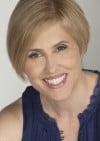book 8 of 24 books in 28 days: autobiography of a face
I read Lucy Grealy's Autobiography of a Face after Ann Patchett's Truth & Beauty, so I was curious to see how they did memoir similarly or differently and how each writer treated their friendship. They do memoir and friendship so differently that Grealy's book barely mentions Iowa and doesn't mention Ann at all.
Grealy's book moves around in time, beginning when she is fourteen, moving back to being a nine-year-old diagnosed with Ewing's sarcoma, moving farther back to her emigration with her family from Ireland to the United States when she was four, moving forward again through high school and college and graduate school and few years afterward. The cancer set off a chain of events that always threatened not only to kill her but to define her: chemotherapy, radiation, the loss of most of the right side of her lower jaw, and nearly thirty surgeries, never successful, to try to reconstruct her face.
The book brought success and attention when it was published in 1994 (Grealy died in 2002). Like Patchett's relationship with Grealy, Grealy's relationship with her face and the attention it brought was complicated.
In Truth & Beauty, Patchett recalls a reading she and Grealy gave together when Autobiography came out. "My brave and heroic Lucy made it clear to the audience that she had no interest in being anybody's inspiration. She was not there as a role model for overcoming obstacles. She was a serious writer, and she wanted her book to be judged for its literary merit and not its heartbreaking content." One woman asked,
"All those conversations, details. Were you ever worried that you might get something wrong?"
"I didn't remember it," Lucy said pointedly. "I wrote it. I'm a writer."
This shocked the audience more than her dismissal of illness, but she made her point: she was making art, not documenting an event. That she chose to tell her own extraordinary story was of secondary importance. Her cancer and subsequent suffering had not made this book. She had made it. Her intellect and ability were in every sense larger than the disease.
The language in Grealy's book, and the thoughts and musings and analyses, are beautiful, poetic. Just one example: "While our bodies move ever forward on the time line, our minds continuously trace backward, seeking shape and meaning as deftly as any arrow seeking its mark."
This is part of what she's doing in this book, "seeking shape and meaning," creating it even, as she asks why her life has happened to her the way it has, and what it means. She looks to Catholicism, to Buddhism, to her parents, to philosophy, to art.
She writes that when she was in middle school, "In the same way I was sure I could prove my love, and lovability, to my mother by showing her I could "take it," I considered the idea that what God wanted from me was to keep trying and trying and trying, no matter how difficult it was. My goal, and my intended reward, was to understand."
At another point she writes, "Most people struggle all their lives to avoid fading unnoticed into the crowd, but this was never my concern. I was special. Being different was my cross to bear, but being aware of it was my compensation. When I was younger, before I'd gotten sick, I'd wanted to be special, to be different. Did this then make me the creator of my own situation?" Later, she asks, "Was there something wrong with me that I should find such comfort in being taken care of so? Did it mean I liked having operations and thus that I deserved them?"
Having defined herself by mirrors and refused them entirely, in writing this memoir she holds another kind of mirror up not only to her face but, as much as she can, to her self. Finally, she concludes, eerily in light of her death at 39, "[I]t is no mistake when sometimes in films and literature the dead know they are dead only after being offered that most irrefutable proof: they can no longer see themselves in the mirror."





2 Comments
whollyjeanne
oh golly. not too long ago i told my husband something about this book and now, of course, i can’t remember a sliver of what it might have been. well, maybe it was really about grealy cause i’ve never read the book.
but now i will.
angela, you’ve put together such a nice eclectic mix of memoirs. i’m thoroughly enjoying myself here.
Square-Peg Karen
Angela, I read the two books the same way; Patchett’s first – loved them both. Grealy’s book – and her life – oh! my heart…
it was amazing (and masterful writing) how Lucy seemed to describe the longings and aches of everyone (or is it just me?) -while she wrote about her one/particular life (if that makes sense)
…and Patchett- oh…she is brilliance personified – her writing (fiction and non) blows me away…love reading your posts.
Wanna move to Pa? Instant reading group!!